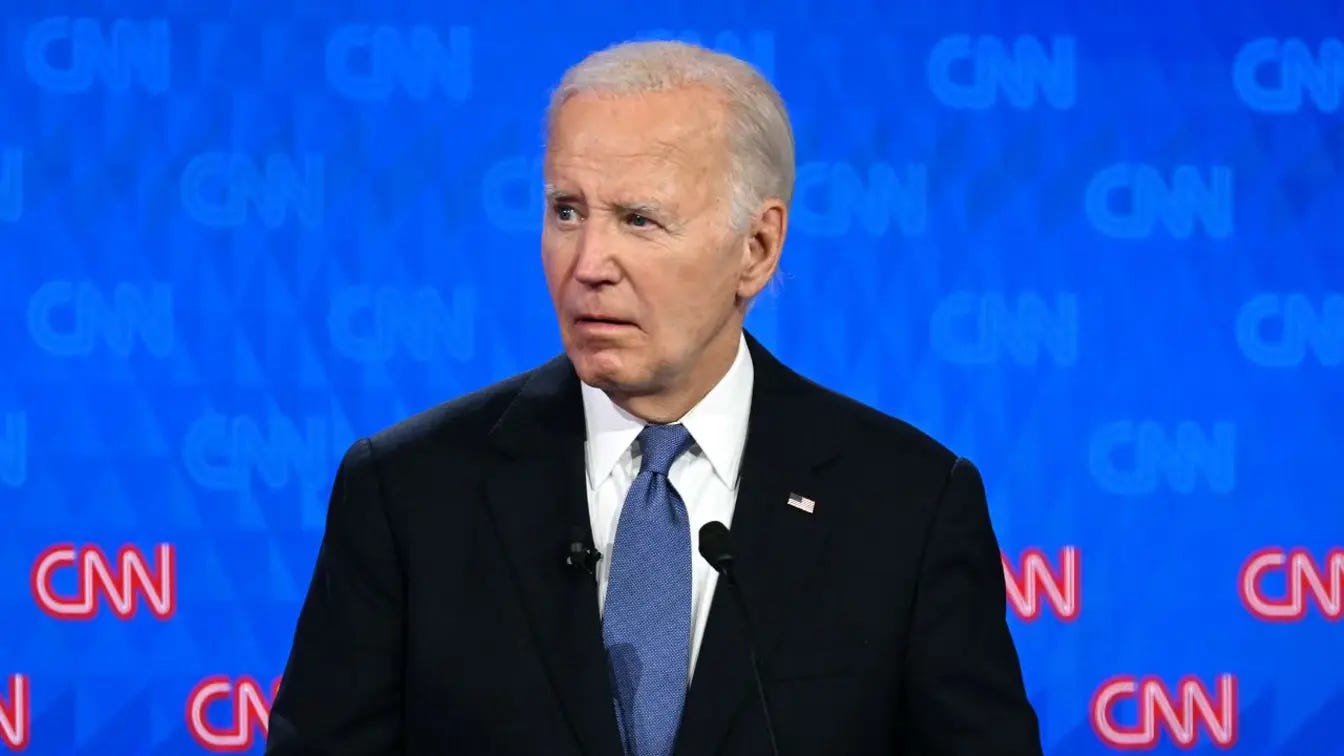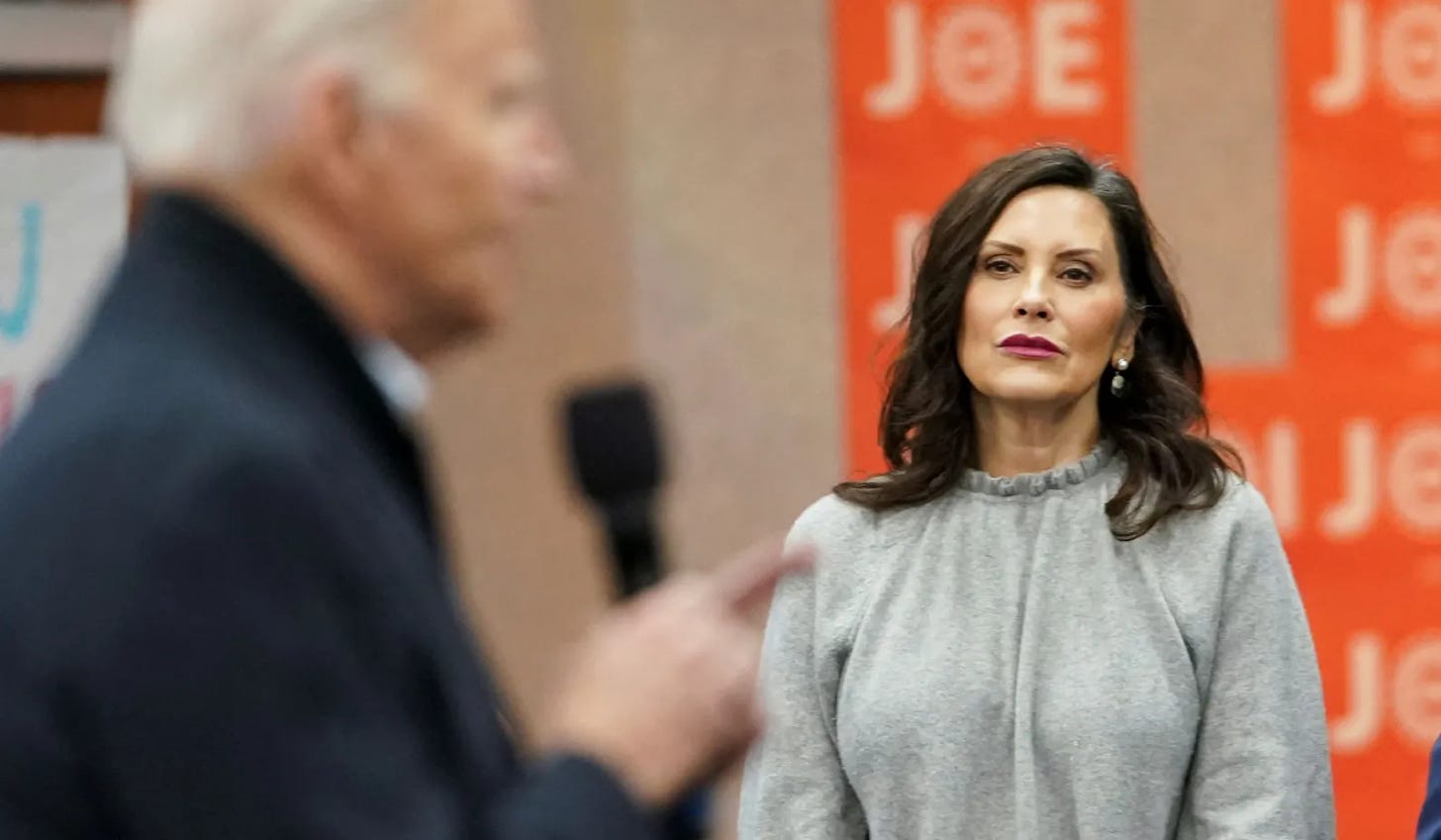This presidential election is putting globalization into the crosshairs again.

Stanford University economist Thomas Sowell offered a profound thought: “The first lesson of economics is scarcity: There is never enough of anything to satisfy all those who want it. The first lesson of politics is to disregard the first lesson of economics.”
As we ponder the appeal of Donald J. Trump, this insight is worth considering. While he stitches together various discontented groups in his bid to retake the White House, the former president seeks to turn the clock back even further on globalization, among other things. By imposing stiff new tariffs on imports, he maintains that this would restore jobs in hard-pressed Middle American communities.
But would it? Would restricting imports boost the numbers of factory jobs, especially in the states Trump hopes to win? And have similar efforts by President Biden – no friend of globalization himself — paid off for most Americans?
The Tax Foundation, a business-friendly but nonpartisan group in Washington, contends that such tariffs under both Trump and Biden have had a contrary effect – at least for Americans overall. Indeed, it’s not clear that they even helped voters in hollowed out manufacturing communities.
The foundation estimates that if imposed, Trump’s proposed tariff increases would hike taxes by $524 billion annually and shrink GDP by at least 0.8 percent. The group finds that the levies would slash employment by 684,000 full-time equivalent jobs. And that’s all before counting the effects of retaliation in this potential escalation of an ongoing trade war.
As president, Trump imposed nearly $80 billion worth of new taxes on Americans by levying tariffs on thousands of products valued at approximately $380 billion in 2018 and 2019, the group calculated. This amounted to one of the largest tax increases in decades.
And things actually worsened under Biden. That’s because the Biden administration kept most of the Trump administration tariffs in place, and in May 2024, announced tariff hikes on an additional $18 billion of Chinese goods. The cost amounted to an additional tax increase of $3.6 billion.
“We estimate the Trump-Biden tariffs will reduce long-run GDP by 0.2 percent, the capital stock by 0.1 percent, and employment by 142,000 full-time equivalent jobs,” the foundation says.
But have the levies benefitted folks in protected industries? Have they kept open factories in the industrial Midwest that otherwise would shut down? Is the tradeoff worthwhile?

As WABC-TV broadcaster Warner Wolf used to say, let’s go to the videotape, (well to the stats, anyway):
The number of manufacturing jobs climbed during Trump’s tenure, rising from 12.383 million in January 2016 to a high of 12.828 million in January 2019, before slipping a bit (perhaps seasonally). This suggests that his policies (perhaps) helped add a relatively small 445,000 such jobs. Thanks largely to Covid, the tally dropped to 12.188 million by January 2021, the beginning of Biden’s term, but then climbed to a high of 12.966 million by this past January before slipping back to a preliminary estimate of 12.950 million by June.
The figures suggest that Biden’s policies (perhaps) helped restore more manufacturing jobs – as few as 122,000, if one counts from the Trump-term height, or as many as 760,000, if one counts from the Covid-dampened figure in 2021.
But do tariffs deserve the credit for gains in either administration? Not according to economists at the National Bureau of Economic Research. As The New York Times reported, a nonpartisan working paper by four such researchers examined monthly data on U.S. employment by industry. Their finding: tariffs that Trump placed on foreign metals, washing machines and an array of goods from China starting in 2018 neither raised nor lowered the overall number of jobs in the affected industries.

Worse, those additional costs did hit many Americans, who paid higher prices for such goods, fueling inflation. Moreover, they incited other countries to impose their own retaliatory tariffs on American products, making them more expensive to sell overseas, and the levies had a negative effect on American jobs, the paper finds. As the Times reported, that was particularly true in agriculture: Farmers who exported soybeans, cotton and sorghum to China were hit by Beijing’s decision to raise tariffs on those products to as much as 25 percent.
Trade wars of the sort that Trump launched, that Biden exacerbated, and that Trump promises to accelerate don’t appear to help even the people they are designed to help. And, overall, consumers and workers pay the freight for this, bearing the burden of higher prices for both imports and domestically produced competing products, the academic work suggests.
“Historical evidence and recent studies show that tariffs are taxes that raise prices and reduce available quantities of goods and services for U.S. businesses and consumers, which results in lower income, reduced employment, and lower economic output. For example, the effects of higher steel prices, largely a result of the 2002 Bush steel tariffs, led to a loss of nearly 200,000 jobs in the steel-consuming sector, a loss larger than the total employment in the steel-producing sector at the time,” the Tax Foundation contends.
So, what accounts for the recent rise in jobs in manufacturing? Well, part of that may be normal economic growth. The number of manufacturing jobs had been rising since at least 2014, predating both Trump and Biden. And, under Biden, assorted industrial policies may have helped boost the tallies, irrespective of tariffs.
Researchers at the Center for American Progress point to investment programs that Biden championed. Singling out three, the group, which styles itself as “progressive” but independent, lists the Infrastructure Investment and Jobs Act (IIJA), CHIPS and Science Act, and Inflation Reduction Act (IRA). The measures were aimed at undoing decades of disinvestment in American communities, the group says.
The efforts were designed to rebuild the nation’s physical, digital, and utility infrastructure; retake the global lead in advanced semiconductor manufacturing; speed the nation’s transition to electric vehicles (EVs) and green energy; and create high-quality jobs, the center notes. These three policies combined direct public spending with grants, loans, tax incentives, and other financial assistance for private companies to promote key sectors, especially manufacturing, using public investment as a way to “crowd in” private investment.

To be sure, there can be little doubt that globalization in recent decades cost some people dearly, even as it benefitted most Americans. While low-cost imported goods helped most consumers, and access to the U.S. market lifted the economies of many other countries, this didn’t help some people – particularly those in industrial states that turned to Trump for relief.
Listen to the liberal Economic Policy Institute: “Globalization of our economy, driven by unfair trade, failed trade and investment deals, and, most importantly, currency manipulation and systematic overvaluation of the U.S. dollar over the past two decades has resulted in growing trade deficits—the U.S. importing more than we export—that have eliminated more than five million U.S. manufacturing jobs and nearly 70,000 factories.”
And consider the disproportionate effect this has had on working-class white voters in the most hard-pressed states – the sort of voters one sees packing into Trump rallies. As The New York Times reported, economic mobility for many of them declined in recent years, even as it improved for many Black Americans.
“Over the past few decades, globalization and changes in technology have caused many jobs to go from the United States to China, India and elsewhere,” the newspaper reported, drawing on a new Harvard study. “These shifts appear to have pushed white people out of the work force, while Black people found other jobs.”
The Times suggests several explanations for the racial disparity.
“White workers might have had more wealth or savings to weather unemployment than their Black counterparts did, but at a cost to their upward mobility,” the newspaper suggests. “They might also have been less willing to find another job. A steel mill that shut down could have employed not just one worker but his father and grandfather, making it a family occupation. People in that situation might feel that they lost something more than a job — and might not settle for any other work.”

Moreover, the Harvard study found that the places where Black workers live were generally less affected by job flight than the places where white workers live. And it noted that, compared with earlier generations, Black workers today are less likely to face racial prejudice in the labor force, making it easier for them to find work. Certainly, this could only fuel the racist demagoguery so rampant nowadays.
As for globalization, even as it has brought big advantages to most Americans — and to many folks overseas — more open trade has been under assault worldwide for years. It was a tough slog for free-trade warrior Clayton Yeutter and President Ronald Reagan to open the way to freer trade back in the 1980s, and many have sought to retrench since. Indeed, the Republican party under the economic nationalist Trump has rejected the concept almost altogether, while Democrats have been only slightly less disapproving.
It’s not clear what a President Kamala Harris would do in this regard. The Tax Foundation, of course, has an idea for what she should do: “In the context of the ongoing trade war, the rise of digital services taxes, and the global minimum tax, U.S. policymakers should seek to build consensus through multilateral negotiations and the rules-based trade system rather than pursue harmful, tit-for-tat retaliation that threatens to compound the harms to U.S. businesses and consumers.”
For his part, Trump has been clear on his route, and it’s not what the foundation would prefer: As the foundation notes, he has proposed a new 10 percent universal tariff on all imports and a 60 percent tariff on all imports from China, as well as potentially higher tariffs on EVs from China or across the board.
As they battle for votes, particularly in key industrial states, Harris and Trump could easily race to the bottom in attacking world trade. The vote in states that they both need — Pennsylvania, Ohio and Michigan, for instance — may turn on the issue. Unlike Trump, however, Harris has some training in economics — it was one of her majors at Howard University as an undergraduate — and her father is an emeritus professor of economics at Stanford University. She should know better.
Will either candidate “disregard the first lesson of economics” and indulge in pandering on the point? Will Harris’s greater degree of economic sophistication keep that impulse in check? Their stances will bear watching.





































